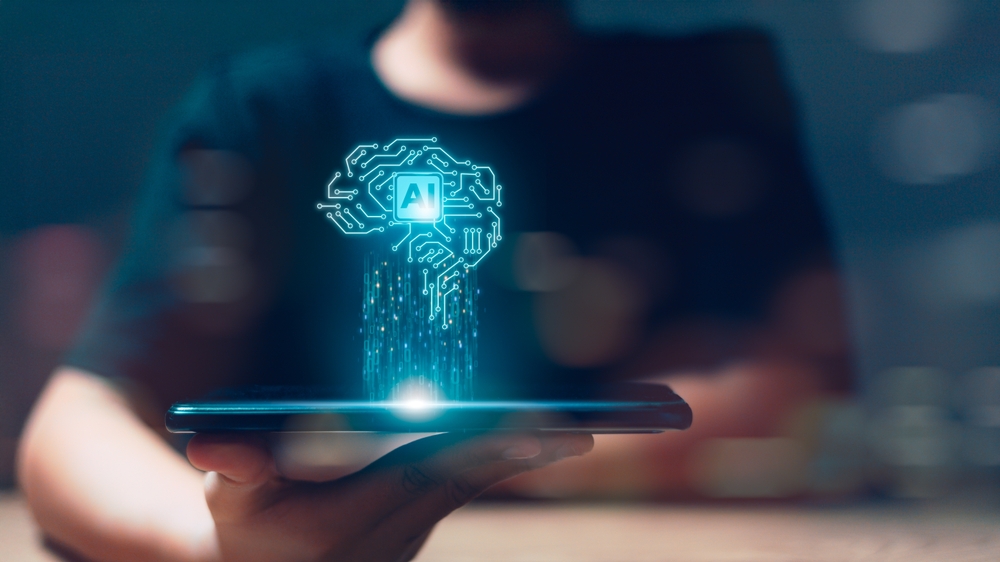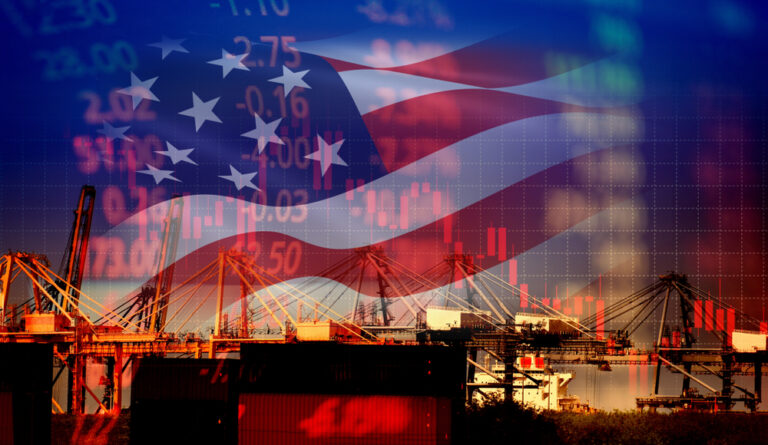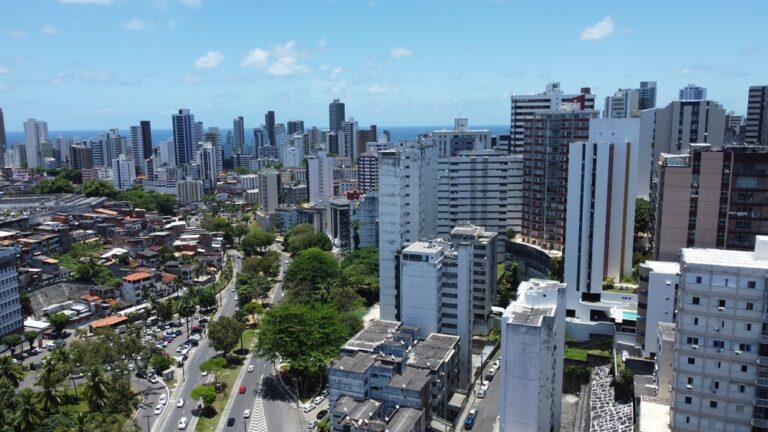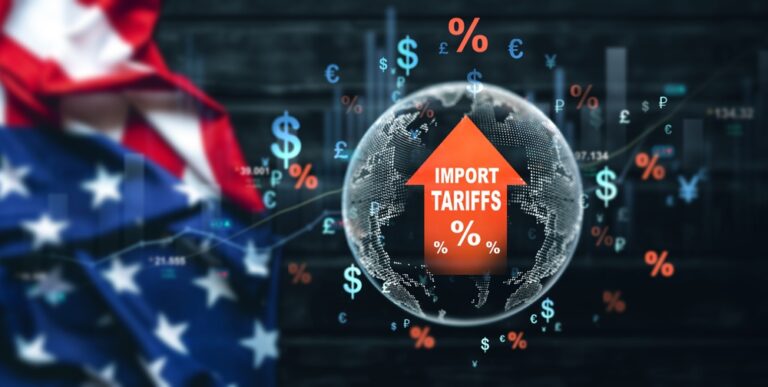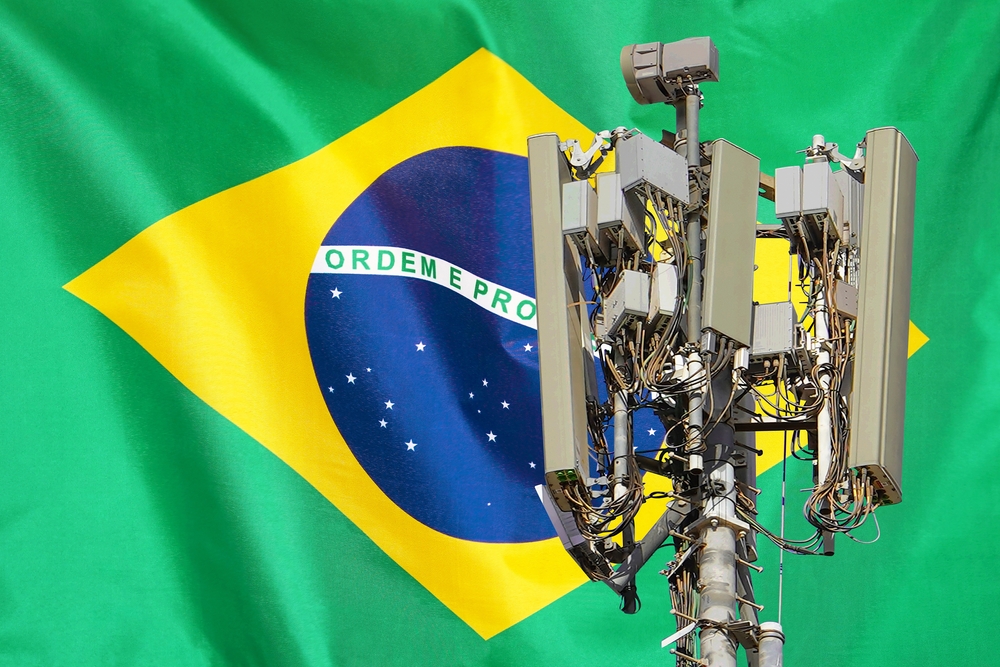Table of Content
ToggleIntroduction
Brazil is rapidly emerging as a significant player in the artificial intelligence landscape. In December 2024, the Brazilian Senate took a major step by approving Bill No. 2338/2023, which establishes rules for AI development and usage throughout the country. This legislation marks Brazil’s formal entry into the global community of nations with dedicated AI regulatory frameworks, balancing innovation with ethical considerations.
The coming year promises to be transformative for Brazil’s digital policy landscape. AI regulation will be a central focus in 2025, alongside related digital technologies including cloud computing, cybersecurity, and social media platforms. Brazil has been working strategically to improve its digital ecosystem, creating an environment that encourages AI innovation while implementing necessary regulatory guardrails.
Brazil’s approach to artificial intelligence governance reflects its unique position as a major emerging economy. The country has made notable strides in recent years toward establishing responsible and ethical AI practices, recognizing both the tremendous opportunities and potential challenges that advanced AI technologies present to its society and economy.
Key Takeaways
- Brazil is establishing a comprehensive legal framework for AI through Bill No. 2338/2023, positioning itself among countries with formal AI regulations.
- Digital policy in Brazil will prioritize AI alongside cloud computing, cybersecurity and social media regulation throughout 2025.
- Brazil’s balanced approach aims to foster innovation while ensuring ethical AI development and usage across its growing digital economy.
Historical Development of AI in Brazil
Brazil has gradually built its artificial intelligence ecosystem through key institutional efforts and policy developments. The country’s AI journey reflects both academic research initiatives and strategic government actions to foster innovation.
Early Innovations and Key Players
Brazil’s AI history begins in the 1970s with computer science research at major universities including the University of São Paulo and the Federal University of Rio de Janeiro. These institutions established the first specialized laboratories focusing on machine learning algorithms and computational linguistics.
The private sector entered the AI scene in the early 2000s. Tech companies like Neoway and Totvs pioneered commercial AI applications for business intelligence and enterprise solutions. By 2020, private investment in AI reached approximately US$464 million per year, marking a significant growth phase.
Academic-industry partnerships accelerated development in the 2010s. Research centers like the Center for Artificial Intelligence at the University of São Paulo contributed significantly to natural language processing and computer vision technologies.
Government Initiatives and Policies
Brazil’s federal government recognized AI’s strategic importance in 2018 with the launch of the Brazilian Strategy for Digital Transformation (E-Digital). This established the foundational framework for future AI policy development.
In 2021, the Brazilian AI Strategy was published, outlining key priorities: research, innovation, talent development, and ethical guidelines. The National Internet of Things Plan also incorporated AI as a critical component for future development.
Brazil has made significant strides in improving its digital ecosystem by balancing innovation incentives with appropriate regulatory measures. The General Data Protection Law (LGPD), implemented in 2020, established important privacy guardrails for AI development.
Recent initiatives focus on international cooperation. Brazil has joined global AI governance forums and established bilateral research partnerships with countries including the United States, China, and EU nations.
Current State of AI in Brazil’s Economy
Brazil is rapidly embracing artificial intelligence technologies across various sectors, transforming its economic landscape. The country shows promising growth in AI adoption with significant financial investments and improvements in operational efficiency.
AI Integration in Enterprises
Brazilian companies are increasingly incorporating AI solutions into their business operations. From banking to agriculture, enterprises are leveraging machine learning and data analytics to improve decision-making processes. The financial sector leads adoption, with banks implementing chatbots and fraud detection systems to enhance customer experience.
Retail giants are using AI for inventory management and personalized marketing campaigns. According to recent trends, around 35% of large Brazilian companies have adopted some form of AI technology in their operations.
Healthcare providers are implementing diagnostic tools powered by AI, while agricultural businesses use predictive analytics for crop management. This integration spans across both traditional industries and tech startups.
Investment Trends and Financial Impacts
Brazil’s AI market is experiencing substantial growth, with projections showing expansion from $3 billion in 2023 to $11.6 billion by 2030. Private investment remains robust, with estimates of approximately $464 million invested annually between 2020 and 2023.
Key investment areas include:
- Cloud infrastructure
- Machine learning platforms
- Natural language processing
- Computer vision solutions
The economic impact extends beyond direct investment, with AI technologies contributing to productivity gains across sectors. Foreign tech companies have established research centers in Brazil, bringing both capital and expertise to the local ecosystem.
Government funding programs support AI startups, creating a favorable environment for innovation and growth in the digital economy.
Supply Chain Performance
AI technologies are revolutionizing supply chain operations in Brazil, addressing longstanding logistical challenges. Companies are implementing predictive maintenance systems to reduce equipment downtime and optimize transportation routes.
Large retailers use demand forecasting algorithms to maintain optimal inventory levels, reducing waste and storage costs. Manufacturing facilities deploy computer vision for quality control, dramatically improving defect detection rates.
Supply chain visibility has improved through IoT devices paired with AI analytics, giving companies real-time insights into product movements. This technology allows for better decision-making during disruptions.
Agricultural supply chains benefit from AI-powered weather prediction and crop yield estimates, helping farmers plan harvests and distribution more effectively. These improvements align with Brazil’s strengths in data policies and e-participation that support digital transformation.
Brazil’s Legal Framework for AI
Brazil has been actively developing regulations for artificial intelligence with a focus on balancing innovation with necessary safeguards. The country’s approach aims to establish clear guidelines while protecting fundamental rights of its citizens.
Data Protection and Privacy Laws
Brazil’s legal framework for AI is closely tied to its data protection regulations. The General Data Protection Law (LGPD), implemented in 2020, serves as a foundation for how AI systems can collect and process personal data. This law establishes rights for data subjects and obligations for controllers and processors.
The National Data Protection Authority (ANPD) oversees compliance with these regulations. Companies developing or deploying AI systems must adhere to ANPD guidelines regarding transparency, purpose limitation, and data minimization.
Brazilian lawmakers recognize the unique challenges AI presents to privacy. AI systems must now include a clear Privacy Policy that explains data collection practices and algorithmic decision-making processes in simple terms accessible to all citizens.
AI and Human Rights Observations
The Brazilian AI Bill places strong emphasis on protecting human rights in the development and use of artificial intelligence. Key protections focus on preventing discrimination, ensuring transparency, and maintaining human oversight of automated systems.
Human Rights Watch has noted Brazil’s progress in addressing potential AI biases through regulatory requirements. Systems that make decisions affecting individuals must provide explanations for those decisions and allow for human review.
Brazil’s Supreme Court has begun setting precedents for how AI can be used in judicial processes. The court requires that AI tools used in legal proceedings must:
- Be transparent about their limitations
- Not replace human judgment
- Allow for effective appeals against automated decisions
- Protect the dignity and rights of all parties involved
Compliance and Big Tech Regulators
In December 2024, the Brazilian Senate approved Bill No. 2,338/2023 establishing a national regulatory framework for AI development. This legislation implements a risk-based approach, with stricter rules for high-risk AI applications.
Companies failing to comply with Brazil’s AI regulations face significant fines of up to 2% of their Brazilian revenue, capped at 50 million reais per violation. Repeat offenders may face doubled penalties and operational restrictions.
Regulatory oversight is divided between sector-specific agencies and the ANPD. This multi-regulator approach allows for specialized oversight while maintaining consistency through the ANPD’s coordinating role.
Big tech companies must now submit high-risk AI systems for pre-approval before deployment in the Brazilian market. This process includes risk assessments, technical documentation, and regular audits to ensure ongoing compliance.
AI and Data Privacy in Brazil
Brazil has taken significant steps to address the intersection of artificial intelligence and data protection. Recent regulatory developments focus on balancing innovation with citizens’ privacy rights.
Challenges and Responses to Data Privacy
Brazil’s approach to AI and data privacy faces several key challenges. The country has been working to establish comprehensive regulations since February 2022, when Senate President Rodrigo Pacheco formed a committee of legal experts to explore AI governance options. This initiative resulted in proposed legislation reviewed by the Brazilian Senate in late 2024.
Key Privacy Concerns:
- Protection of personal data in AI systems
- Rights of data subjects when their information feeds AI algorithms
- Algorithmic transparency and accountability
- Potential for discrimination through automated decision-making
The legislation aims to create a framework that protects citizens while allowing technological advancement. Companies operating in Brazil must now consider both general data protection laws and emerging AI-specific regulations when developing or deploying AI systems.
The Role of ANPD
Brazil’s National Data Protection Agency (ANPD) has emerged as the central authority overseeing the intersection of AI and data privacy. In early 2025, ANPD initiated a public consultation specifically examining AI’s relationship with data protection principles.
The ANPD consultation addresses:
- Appropriate safeguards for personal data used in AI training
- Requirements for transparency in automated decision systems
- Implementation standards for Brazil’s existing data protection framework in AI contexts
This regulatory body now serves as the primary enforcer of both general data protection rules and AI-specific guidelines. The ANPD works to ensure that companies implement proper data protection impact assessments before deploying AI systems that process sensitive personal information.
Organizations must maintain documentation showing compliance with ANPD guidelines, particularly regarding informed consent and data minimization principles in AI applications.
Generative AI and Its Impact on Social Media
Generative AI is transforming social media platforms in Brazil, creating both innovative opportunities and significant challenges. Major platforms are integrating AI technologies that change how Brazilians interact with content online.
Deepfakes and Ethical Concerns
Deepfakes have become a growing concern in Brazil’s social media landscape. These AI-generated videos can manipulate a person’s likeness, making them appear to say or do things they never did. The technology has raised serious ethical questions about consent and misinformation.
In December 2023, Brazil took a significant stand when it banned X (formerly Twitter) from using children’s data to power its AI. This decision highlighted the country’s commitment to protecting minors from exploitation in AI development.
Meta platforms like Facebook and Instagram have implemented detection tools to identify deepfakes. However, as the technology improves, distinguishing between real and fake content becomes increasingly difficult for average users.
AI-Generated Content and Exclusive Ownership
Brazilian content creators face new challenges regarding ownership of AI-generated material on social media. When platforms like Meta integrate generative AI features, questions arise about who owns the resulting content.
Brazil is working to develop sovereign generative AI solutions that reflect Brazilian values and address local needs. This approach aims to ensure that AI-generated content doesn’t just serve foreign interests but benefits local communities.
Some Brazilian media outlets have embraced generative AI to enhance their work. These organizations are using AI tools to expand their reach and provide better services to their audiences while maintaining editorial control and ownership.
Current legislation often lags behind technological advancements, creating gray areas around intellectual property rights for AI-generated content on platforms like Instagram and Facebook.
AI Innovations in Digital Technologies
Brazil is rapidly embracing AI innovations across its digital technology landscape. The country’s tech sector is experiencing unprecedented growth, creating a fertile environment for AI advancement and implementation.
Advances in Remote Sensing and Integrated Platforms
Brazil has made significant progress in developing AI-powered remote sensing technologies. These systems help monitor the vast Amazon rainforest, agricultural lands, and urban development with unprecedented precision.
Advanced satellites and drones equipped with AI analytics now provide real-time data to Brazilian researchers and companies. This allows for better environmental protection and resource management across the country’s diverse ecosystems.
Brazil’s tech sector growth has supported the development of integrated software platforms that combine multiple data streams. These platforms use AI to analyze information from various sources, creating comprehensive views of complex systems.
Companies and government agencies use these integrated platforms to make data-driven decisions. The platforms help identify patterns and trends that would be impossible to detect through human analysis alone.
GenAI and Large Language Models
Brazil is emerging as a leading center of AI innovation in Latin America, particularly in generative AI and large language models. The country’s unique linguistic needs have driven development of Portuguese-optimized LLMs.
Brazilian tech companies have created specialized models trained on local cultural contexts and language nuances. These models better understand Brazilian Portuguese than international alternatives, making them more effective for local applications.
The government has supported this development through the National Plan for AI, allocating approximately $4 billion to develop business innovation projects. This investment has accelerated research into advanced models similar to those developed with datasets like LAION-5B.
After years of debate, Brazil approved its AI bill in December 2024, creating a new legal framework for AI. This balanced approach aims to promote innovation while establishing ethical guidelines for AI development and use.
The Role of AI in Brazil’s Supply Chain
Artificial intelligence is transforming Brazil’s supply chain landscape with measurable improvements in efficiency and cost reduction. Companies implementing AI solutions in Brazil have reported up to 20% reduction in logistics costs and 25% improvement in operational efficiency.
Enhancing Resilience and Efficiency
Brazilian businesses are increasingly adopting AI to strengthen supply chain resilience against disruptions. These intelligent systems can predict potential bottlenecks before they occur and suggest alternative routes or suppliers.
The integration of machine learning algorithms helps Brazilian companies analyze historical data patterns to optimize inventory management. This prevents both overstocking and stockouts, a critical advantage in Brazil’s diverse geographic landscape.
AI-powered analytics tools evaluate supplier performance with greater accuracy, allowing businesses to make data-driven decisions about partner selection. Companies can now respond more quickly to market changes by automatically adjusting procurement strategies based on real-time inputs.
Supply chain AI adoption in Brazil is particularly valuable for managing the country’s complex logistics challenges across vast territories.
Advanced Planning and Control Tower Systems
Brazil’s supply chain operations are being revolutionized through AI-driven control tower systems that provide end-to-end visibility. These centralized platforms collect and analyze data from multiple sources, creating a single source of truth for decision-makers.
Advanced planning systems incorporate AI to forecast demand with greater precision, particularly important in Brazil’s volatile economic environment. These tools consider multiple variables including seasonality, regional preferences, and economic indicators unique to the Brazilian market.
The strategic integration of AI technologies is revitalizing Brazil’s industrial fabric by streamlining operations and creating more responsive supply networks. Real-time monitoring allows for immediate intervention when problems arise.
Brazil’s customs operations have been transformed through the implementation of SISAM, a machine learning system that analyzes all import declarations in the country, significantly reducing processing times and enhancing compliance.
AI-Powered Business and Marketing Strategies
Brazilian businesses are rapidly adopting artificial intelligence to transform their operations and marketing approaches. Nearly 98% of Brazilian companies are now incorporating AI into their marketing strategies, revolutionizing how they connect with customers and optimize business processes.
Leveraging AI for Sales and Distribution
AI systems have transformed sales processes across Brazil’s business landscape. Companies now implement predictive analytics to forecast customer demands and optimize inventory management. This technology helps businesses identify buying patterns and adjust their distribution strategies accordingly.
Machine learning algorithms enable personalized product recommendations that have increased conversion rates by up to 35% for many Brazilian retailers. These systems analyze customer browsing history and purchase behavior to suggest relevant products.
AI-powered chatbots have become essential for Brazilian businesses, enhancing conversational engagement and improving customer service efficiency. They handle routine inquiries, process orders, and provide 24/7 support.
Distribution networks now utilize AI for route optimization, reducing delivery times and transportation costs. This has proven particularly valuable in Brazil’s diverse geographic landscape.
AI-Enabled Circular Economy Initiatives
Brazilian companies are using AI to advance circular economy principles, focusing on sustainability and resource efficiency. Smart recycling systems powered by AI can sort materials with 99% accuracy, significantly improving recycling rates.
AI analytics help businesses identify waste reduction opportunities throughout their supply chains. By analyzing production processes, companies can pinpoint inefficiencies and implement more sustainable practices.
Several Brazilian manufacturers now employ predictive maintenance AI to extend equipment lifespan. These systems monitor machinery performance and detect potential failures before they occur, reducing waste from premature replacements.
AI-driven platforms connect businesses to create symbiotic relationships where one company’s waste becomes another’s raw material. This technology has created new market opportunities while reducing environmental impact.
The Brazilian government supports these initiatives through its National Strategy for Artificial Intelligence (ENAIC), which promotes sustainable AI applications across industries.
AI Training and Education Initiatives in Brazil
Brazil is making significant strides in AI education and training to build local expertise and foster innovation. These initiatives span from workforce development to strategic partnerships that connect academic research with practical applications.
Building a Skilled AI Workforce
Brazil has launched several programs to develop AI talent across the country. The Brazilian Artificial Intelligence Plan (PBIA) 2024-2028 serves as a roadmap for AI skill development nationally.
This comprehensive plan focuses on training professionals at various levels, from technical courses to advanced degrees. Brazil’s Ministry of Science, Technology and Innovation has prioritized creating specialized AI curricula in universities and technical institutions.
Research shows that AI tools are being integrated into the educational system itself. One notable example includes using AI systems to score and provide feedback on essays for Brazil’s national post-secondary admission exams.
These training initiatives aim to create a workforce capable of developing and implementing GenAI solutions across different sectors of the Brazilian economy.
Partnerships between Academia and Industry
Brazilian universities are forming strategic alliances with technology companies to accelerate AI innovation. These collaborations create practical learning environments where students work on real-world challenges.
Major tech companies have established research centers at institutions like the University of São Paulo and the Federal University of Rio de Janeiro. These partnerships provide students with access to cutting-edge AI tools and technologies.
AI education programs for researchers are enhancing both learning and research outcomes across Brazilian academic institutions. The collaboration model typically involves joint research projects, internship opportunities, and specialized training programs.
Industry partners contribute technical expertise and computing resources, while universities provide the theoretical foundation and research capabilities. This synergy has led to innovative AI applications in healthcare, agriculture, and financial services.
AI Competition and Market Dynamics
Brazil’s AI market is experiencing rapid growth with fierce competition among local and international players. The dynamics of this space reflect both challenges and opportunities as various enterprises position themselves in this evolving technological landscape.
Competitive Landscape in the AI Field
Brazil has emerged as one of Latin America’s leading centers for AI innovation. The competitive environment includes both domestic startups and international tech giants establishing local operations.
Major players compete primarily in sectors like finance, agriculture, healthcare, and retail. Brazilian banks have invested heavily in AI for fraud detection and customer service solutions, creating a competitive financial AI ecosystem.
Big Tech companies like Google, Microsoft, and Amazon have established AI research centers in Brazil, intensifying competition for talent and market share. These global entities often partner with local universities to develop region-specific AI solutions.
Local AI startups face funding challenges but benefit from understanding regional needs. Many focus on creating Portuguese-language models and Brazil-specific applications to carve out market niches against larger competitors.
Brazil’s Position in the Global AI Race
Brazil’s AI market is projected to grow significantly, with the AI training datasets market alone expected to reach USD 435.61 million by 2032, growing at a 24.5% CAGR. This rapid growth positions Brazil as a significant player in the global AI landscape.
The conversational AI segment shows particularly strong performance, generating USD 433.9 million in 2023 with expectations to reach nearly USD 1.9 billion by 2030. This growth outpaces many other regional markets.
Government institutions are increasingly adopting AI solutions, though concerns about potential anti-competitive conduct have prompted discussions about new regulatory frameworks. These regulations will shape future market dynamics.
Brazil faces challenges in the global race, including:
- Limited semiconductor manufacturing capacity
- Brain drain of AI talent to North America and Europe
- Need for more specialized AI education programs
Future Projections for AI in Brazil
Brazil’s AI landscape is poised for significant expansion in the coming years. The country is positioning itself as a regional leader with strategic investments and policy frameworks that will shape its technological future.
Predicted Developments and Innovations
Brazil’s AI market is projected to grow from $3 billion in 2023 to $11.6 billion by 2030, representing a dramatic expansion in capabilities and applications. This growth will be guided by the recently launched Brazilian Artificial Intelligence Plan (PBIA) 2024-2028, which provides a roadmap for national AI development.
Generative AI tools are expected to become more specialized for Portuguese language applications. This localization will improve accuracy and relevance for Brazilian users across industries.
Public sector innovation will accelerate with AI integration in government services. Smart city initiatives in major urban centers like São Paulo and Rio de Janeiro will implement AI for traffic management, public safety, and resource optimization.
Potential Market Evolutions
The investment landscape for AI in Brazil shows promising trends. Private funding is expected to exceed the previous annual investment rate of approximately $464 million as international tech companies establish stronger presences in the country.
Key sectors for AI growth include:
- Agriculture: Precision farming and crop optimization
- Healthcare: Diagnostic tools and patient management systems
- Financial services: Fraud detection and personalized banking
According to ISG Provider Lens assessments, Brazilian businesses are increasingly seeking AI solutions that address specific local challenges. This demand is creating opportunities for domestic startups to compete with international providers by offering tailored AI models.
Sustainable AI applications will gain traction as Brazil leverages technology to address environmental challenges and support conservation efforts in the Amazon and other ecological zones.
Frequently Asked Questions
Brazil is actively evolving its approach to artificial intelligence through regulation, innovation initiatives, and strategic planning. The country faces unique challenges and opportunities as it positions itself in the global AI landscape.
What initiatives has Brazil taken to develop its national AI strategy?
Brazil launched its National Artificial Intelligence Strategy in April 2021, outlining priorities for AI development across various sectors. The strategy focuses on six vertical axes including health, agriculture, industry, and smart cities.
The government has also established research centers and innovation hubs specifically for AI development. These include partnerships between universities, private companies, and public institutions to foster AI growth.
Brazil has invested in training programs and educational initiatives to build a skilled workforce capable of developing and implementing AI solutions. This includes scholarships for advanced degrees in AI-related fields and technical training programs.
How does Brazil’s AI regulatory framework compare to other countries?
Brazil’s approach to AI regulation is emerging through its new AI law, which addresses AI usage standards and consumer rights. The regulatory framework is less mature than those in the EU or US but is quickly developing.
Unlike the EU’s comprehensive AI Act, Brazil has taken a more sector-specific approach. The Brazilian framework places strong emphasis on ethical considerations and protection of fundamental rights when deploying AI systems.
Brazil’s regulations share similarities with other Latin American countries but incorporate elements from global regulatory frameworks. This creates a balanced approach that considers both regional needs and international standards.
In what sectors is AI technology predominantly being implemented in Brazil?
The financial sector leads AI adoption in Brazil, with banks implementing chatbots, fraud detection systems, and credit scoring algorithms. These technologies have significantly improved customer service and security measures.
Agriculture represents another key area, with AI solutions for precision farming, crop monitoring, and harvest prediction. These technologies help maximize yields and minimize resource usage in Brazil’s vital agricultural sector.
Healthcare is rapidly integrating AI for diagnostic assistance, patient monitoring, and administrative efficiency. Brazilian hospitals and clinics increasingly use AI-powered tools to improve care delivery and resource management.
What legal measures has Brazil introduced to address AI ethics and data privacy?
Brazil’s General Data Protection Law (LGPD), implemented in 2020, forms the foundation for data privacy in AI applications. This law regulates how personal data can be collected, processed, and stored, including data used for AI systems.
The country has established specific regulations for AI transparency and accountability, requiring companies to explain how their AI systems make decisions. This helps protect consumers from discriminatory or unfair algorithmic practices.
Ethics committees and oversight boards have been created to monitor AI deployment in sensitive areas. These bodies review AI applications in healthcare, criminal justice, and education to ensure ethical implementation.
How does Brazil encourage innovation in AI while ensuring public safety?
Brazil uses regulatory sandboxes to allow companies to test innovative AI solutions in controlled environments. This approach gives businesses freedom to innovate while maintaining oversight for public safety.
Tax incentives and government grants target AI startups and research initiatives. These financial supports help emerging companies develop new technologies without sacrificing safety considerations.
Public-private partnerships create collaborative environments where industry experts work alongside regulators. This cooperation ensures that innovation proceeds with appropriate guardrails to protect the public interest.
What are the forecasts for the growth of the AI industry in Brazil over the next five years?
Economic projections suggest Brazil’s AI market will grow by approximately 25% annually through 2030. This growth represents significant opportunities for domestic and international companies investing in the Brazilian market.
By 2025, AI technologies are expected to play a central role in transforming key sectors of Brazil’s economy. Industries like healthcare, agriculture, and financial services will see the most substantial impacts.
Employment in AI-related fields is predicted to increase substantially, creating thousands of specialized jobs. Universities and technical schools are expanding their programs to meet this growing demand for AI professionals.

